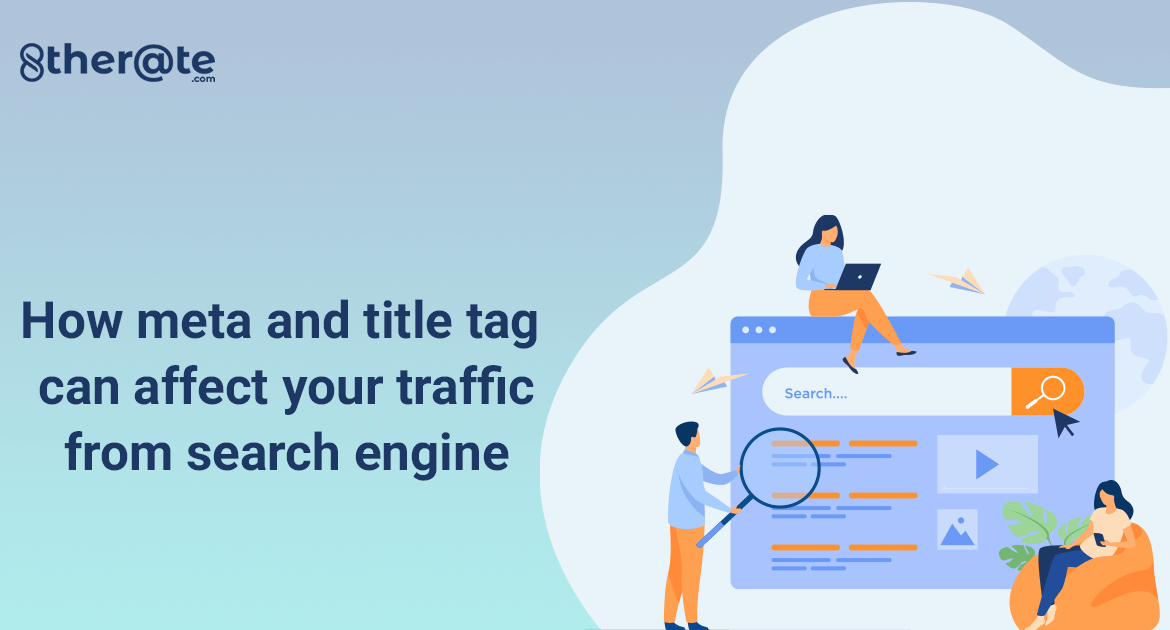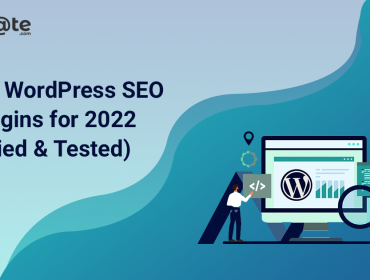Meta and Title tags play an influential role in attracting traffic from search engines. Search engines take the key information from meta descriptions and titles to match up with user queries. Some marketers ignore the relevance of meta descriptions. With this, they lose opportunities to tap in traffic looking for the appropriate text from search results.
Are you ranking great in SERP results? What are the chances that users will click on your website? Nowadays, umpteen information is available online. And the number of zero-clicks is increasing with featured snippets, and people also ask. They help address basic user queries to a great extent.
Here, you can grab maximum traffic by raising visitors’ curiosity. They must try to lookup more and click on your website link. Let’s see how meta and title tags can change your SEO game.
Table of Contents
What are Meta and Title tags?
Meta tags are HTML elements to tell search engines and viewers about your site and web page. They are directly visible on the website. But, search engines display them to reveal more information about your website to users.
Similarly, a title tag is also an HTML element that specifies the title of the web page. It gets displayed as the title in search snippets on SERPs.
How do Meta and Title tags influence search engine optimization?
Meta tags form the crucial part of SEO. Most of the websites mention meta tags in their coding. Otherwise, search engines pick random text from the web page. It may not match with what users are looking for. SEO company in India can help you design appropriate tags for your website. They take care of customers’ journeys and concern areas for the same.
Indeed, knowing the meta tags categories and their relevance is necessary to mention them accurately. These are the ones:
Title tags
Title tags are also known as meta titles. The best part of title tags is they act as an instant attraction for users. Nobody will click on boring and lame tags. But, appealing title tags can make a lot of difference in CTR. It drives more traffic to the top of the marketing funnel.
Title tags best practices
- The optimal length of the title tag is between 50-60 characters. It is the best length for reader comprehension. Also, search engines will put “..” in the title tag, reducing the meaning of putting the title tag.
- Frame your title tag first before starting a web page. A rough title setup will help you remain on track.
- Write for humans first because they are the ones who are at the receiving end. Understand your customer behavior to deliver the best title.
- Add your brand name at the end of your title for improving your brand online presence.
Meta description
The meta description is a collection of words that appears below the website link in the search results. It contains a small gist of what your web page is about. Meta description must lie between 155-160 characters. With meta descriptions, content marketers can sketch out the summary and quality of the web page.
How to write a meta description?
Important tips are:
- Use active voice and keep it as actionable as possible. It must be a compelling copy that is easy to read and understand. Also, actionable meta descriptions will guide users on what they tend to do in a few words.
- Mind the keywords in the meta description. Include call-to-action keywords as well. For example: Find out more, free ebook available, subscribe to get offers, etc. Highlight important keywords by keeping them in bold.
- For products, show specifications, prices, or attractive offers to bind the users. In this way, they’ll come to know how you’re different or unique from others.
Header tags
Header tags include H1, H2, H3, and H4 tags. They prove to be an effective way to increase user understanding of your text. Readers can quickly scan page information with header tags. Use essential keywords, their synonyms, and LSI keywords for search engine optimization.
Canonical tags
Canonical tags are essential for web indexability and crawlability. These tags tell search engines which web page to index in search results amongst similar web pages.
Alt text tags
Alt text tags are worthwhile for expanding the bandwidth and range of websites. Use alt text tags on the visually impaired to understand what a specific image is about.
Robots meta tag
Meta robots tag guides search engines on how to crawl the web page. It tells whether to follow or not follow the web page with Follow/ Nofollow tags. Also, there are tags for informing search engines about indexing or not indexing web pages with Index/ No Index tag.
Final Takeaways
Working on meta and title tags is instrumental in hitting the bull’s eye mark for search engines and users. If it resonates with the customer’s mind, they’ll prefer to visit your site over others.


